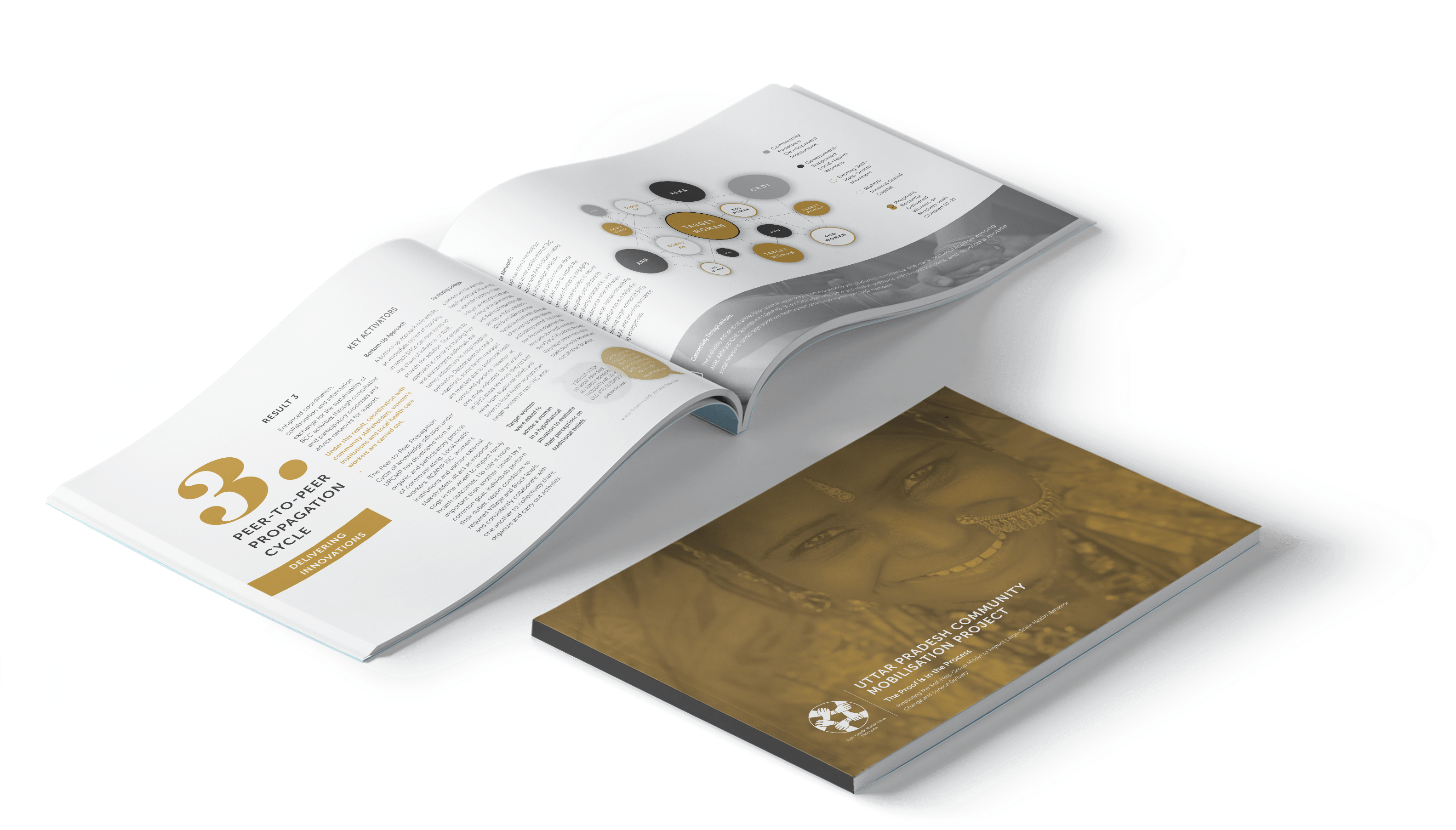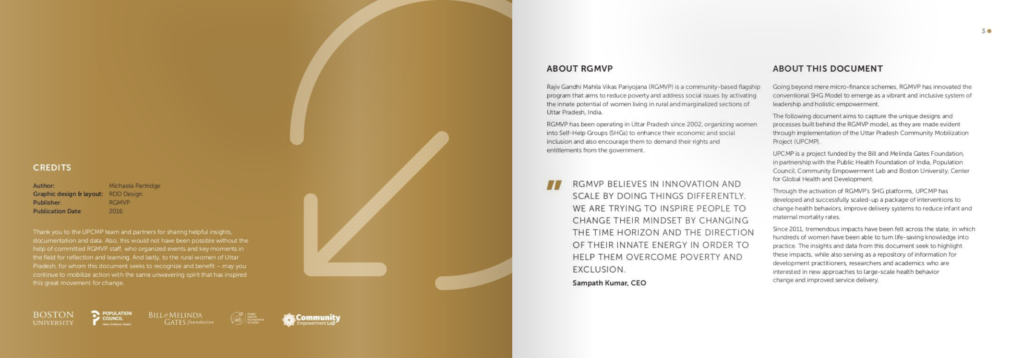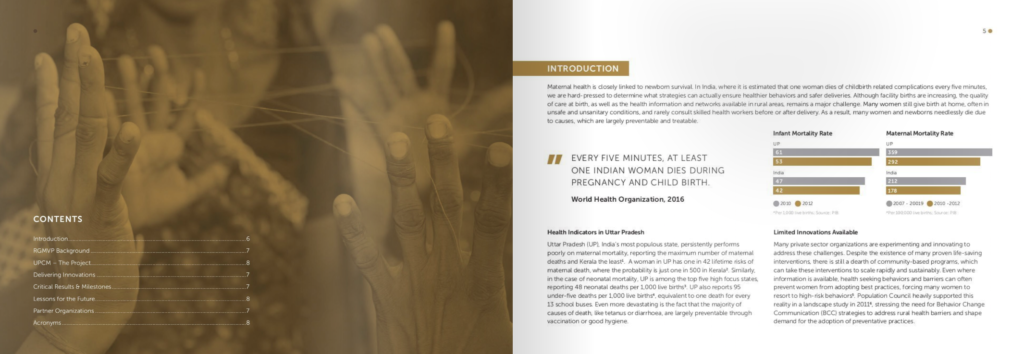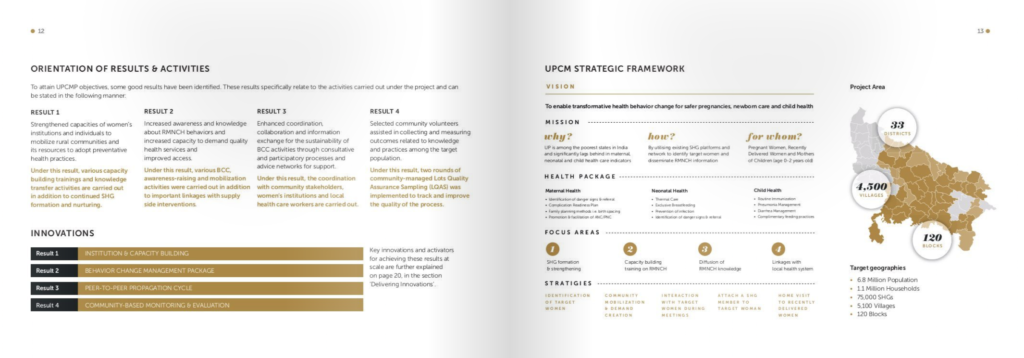

Maternal health is closely linked to newborn survival. In India, where it is estimated that one woman dies of childbirth related complications every five minutes, we are hard-pressed to determine what strategies can actually ensure healthier behaviors and safer deliveries. Although facility births are increasing, the quality of care at birth, as well as the health information and networks available in rural areas, remains a major challenge. Many women still give birth at home, often in unsafe and unsanitary conditions, and rarely consult skilled health workers before or after delivery. As a result, many women and newborns needlessly die due to causes, which are largely preventable and treatable.
In this context, RGMVP launched the Uttar Pradesh Community Mobilization Project (UPCMP) alongside a consortium of development practitioners, action-oriented researchers and behavior change experts to pilot and evaluate a unique model through social platforms. Genderless Agenda was brought on board to conduct the six-month long process documentation to capture the unique designs and innovations that are contributing to maternal and neonatal health outcomes in rural India.



The final document sought to articulate the deeper insights and explanations as to why and how positive results were achieved. It reflects on the various kinds of capacity building and health mobilization activities carried out, the methods underlying these activities and the roles and responsibilities of individuals and groups to sustain the process. The goal was to educate others about RGMVP and explain how it had innovated the conventional self-help group model to expand and leverage its scope from mere micro-finance linked groups to vibrant and inclusive leadership building platforms with strong potential to impact family health outcomes at scale.
You can access the final publication on yompu.com here.
Rajiv Gandhi Mahila Vikas Pariyojana
February 1, 2018